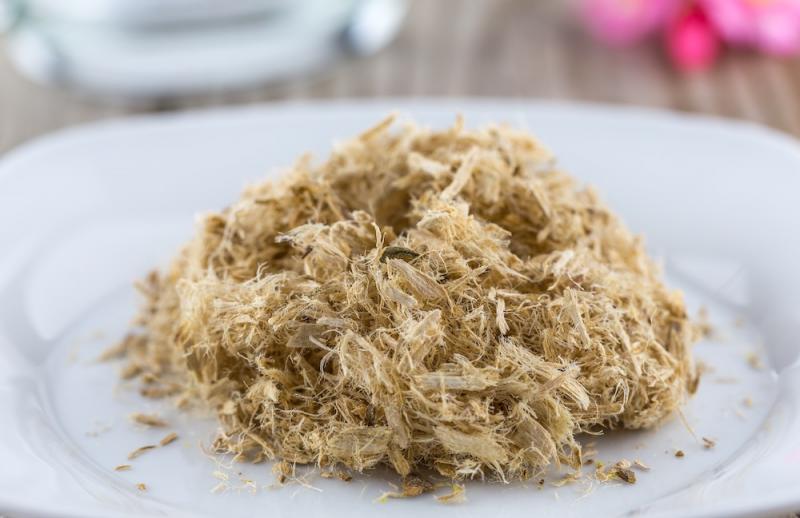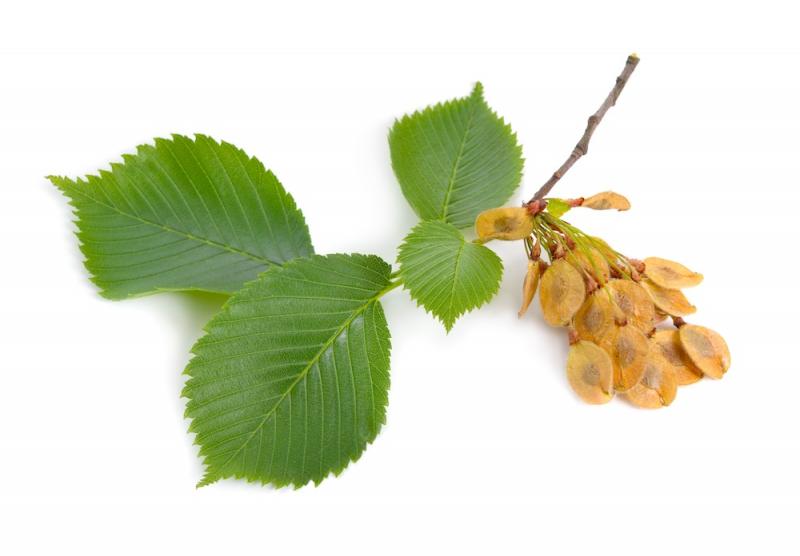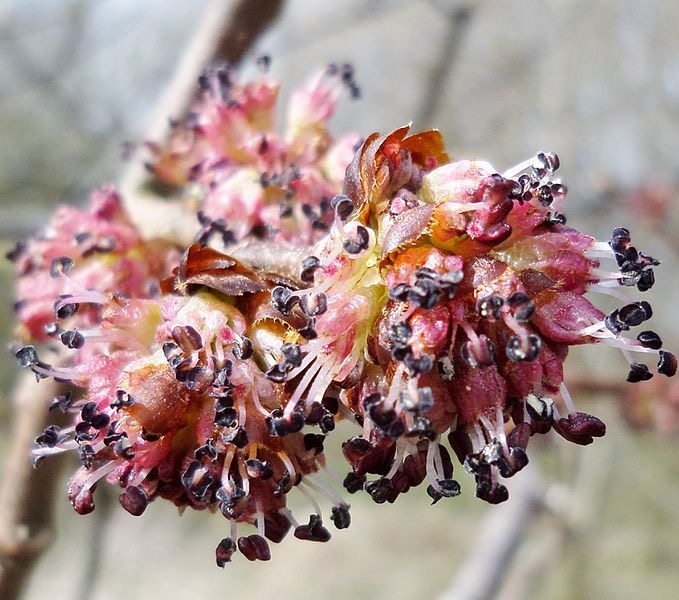
Slippery elm was one of the major remedies I used when my children were young. It's a mild, safe, nourishing, and mucilaginous remedy that soothes irritated tissues and moistens dry tissues. It primarily acts on the skin and mucus membranes. I try not to overuse it because it is a tree bark and I don't want it to become endangered. So, I lean towards mucilaginous herbs like aloe vera and marshmallow that are easier to sustainably harvest when it makes sense. Still, I love this remedy and want people to know how to use it where it is needed.
Slippery Elm as a Mild, Nourishing Food
 Slippery elm is a bland but highly nutritious food. Its use as a survival food dates back to the early days of America. It was the bark of the slippery elm that kept George Washington’s soldiers alive at Valley Forge. It’s also a good food to help build up the health of a weak and debilitated person. The pioneer herbalist, Samuel Thomson, fed a gruel made of slippery elm to frail patients before beginning his cleansing procedures.
Slippery elm is a bland but highly nutritious food. Its use as a survival food dates back to the early days of America. It was the bark of the slippery elm that kept George Washington’s soldiers alive at Valley Forge. It’s also a good food to help build up the health of a weak and debilitated person. The pioneer herbalist, Samuel Thomson, fed a gruel made of slippery elm to frail patients before beginning his cleansing procedures.
I recommend it as a food for people whose GI tract is distressed from chemotherapy or other medical treatments to soothe and nourish the digestive tract. It’s a good food for people with irritable bowel, especially when they alternate between diarrhea and constipation. It’s also a good remedy for diarrhea in children. Slippery elm soothes the entire gastrointestinal tract, including the esophagus (throat), stomach, small intestines, colon, and rectum. It acts as a gentle bulk laxative and also absorbs the irritating substances that cause diarrhea.
I don’t recommend taking slippery elm in capsules. You need to take way too many capsules to get the effect. It also won’t work as a tincture or glycerite. Instead, you take the bulk powder. It’s not unpleasant to taste, so it’s not difficult to use.
Suggestions for Taking Slippery Elm Internally
 A good way to take it for reducing gastrointestinal irritation (ulcerations and inflammation) is to mix 1 to 2 teaspoons bulk powder with warm water or juice in a blender. (It’s hard to mix by hand as it doesn’t dissolve well. You can sweeten it with a little honey if desired. Drink it quickly before it has a chance to thicken. You can also use freshly ground flaxseeds in combination with the slippery elm, especially if you tend to have dry stools.
A good way to take it for reducing gastrointestinal irritation (ulcerations and inflammation) is to mix 1 to 2 teaspoons bulk powder with warm water or juice in a blender. (It’s hard to mix by hand as it doesn’t dissolve well. You can sweeten it with a little honey if desired. Drink it quickly before it has a chance to thicken. You can also use freshly ground flaxseeds in combination with the slippery elm, especially if you tend to have dry stools.
For diarrhea in infants and children, the powder can be mixed with applesauce, yogurt, or some other food the child likes. It can also be blended with fruit juice in the blender. Slippery elm can be mixed with hot organic milk or a milk alternative (1/2 teaspoon per cup) and molasses (to taste) for a soothing mock "chocolate" drink. You could also blend it with hot chocolate made with organic milk or a milk alternative. Either option is a soothing and nourishing beverage for children or adults.
A simple slippery elm gruel can be made by mixing one teaspoonful of slippery elm powder with enough cold water to make a perfectly smooth and thin paste (as you would when mixing flour or cornstarch for a sauce or gravy). You can then add hot water, milk, or a milk alternative. It can be flavored with cinnamon, nutmeg, lemon rind, or other pleasant spices and sweetened with a little honey or other natural sweetener.
Sore Throat and Dry Cough Remedy
Slippery elm lozenges can be sucked on to ease throat irritation or a dry cough. You might also try mixing a little slippery elm powder with water to make a paste and suck on that to help with a sore throat, throat irritation or tickling sensations, inflammation of the esophagus, heartburn, GERD, and dry cough. You could also mix it half and half with licorice root powder (which would sweeten it) and use it for these same problems. The two herbs play well together.
Slippery Elm for Poultices
Slippery elm is also excellent as a poultice or as the base for a poultice. The basic poultice I use is equal parts powdered slippery elm bark, marshmallow root, and plantain leaf. You can add other herbs as needed. For example, I add white oak bark as an astringent if I need to tighten up loose tissue. I add goldenseal and echinacea for infection. I also add comfrey leaf to help injuries heal faster.
We used to sprinkle a little slippery elm powder into our baby's diapers to prevent diaper rash. It worked well. Another time, my wife developed a swelling in her breast while nursing. A poultice of slippery elm mixed with a little aloe vera gel quickly brought the swelling down.
Elm Flower Essence
 Slippery elm is harvested from the bark of Ulmus rubra, a species of elm native to the Eastern United States. A European species, Ulmus procera, is one of the original 38 Bach flower remedies. I learned a simple phrase that helps me remember what the flower essence is used for, “Elm is for overwhELM.” The person who needs elm is overwhelmed by their duties and responsibilities. They feel like life has given them too much to handle and they are not equal to the tasks before them.
Slippery elm is harvested from the bark of Ulmus rubra, a species of elm native to the Eastern United States. A European species, Ulmus procera, is one of the original 38 Bach flower remedies. I learned a simple phrase that helps me remember what the flower essence is used for, “Elm is for overwhELM.” The person who needs elm is overwhelmed by their duties and responsibilities. They feel like life has given them too much to handle and they are not equal to the tasks before them.
The English elm is a tall, erect tree, and like oak trees, it is strong. However, it has lost the ability to reproduce from its seeds. It has to be propagated from suckers. The person who needs this remedy is a strong person who has given his life over to the service of others but becomes discouraged when the going gets rough. The flower essence helps them have the faith and confidence they need to complete the tasks they have set out to do. I’ve used this essence on myself and found it quite helpful when I’ve started feeling like I just can’t cope with everything on my plate.
Slippery Elm as an Emotional Remedy
 Speaking of plates, Dorothy Hall paints an interesting emotional profile for slippery elm, which is also a tall, strong tree, centered on digestion. The person who needs slippery elm has to digest everything. They often swallow their emotions, can’t stomach things, have a hard time swallowing things, and find situations feeding their negative emotions. Their negative reactions to emotional stress tend to irritate and inflame their GI tract from the throat to the anus, which can cause a variety of symptoms such as difficulty swallowing, ulcers, colitis, irritable bowel syndrome, and hemorrhoids.
Speaking of plates, Dorothy Hall paints an interesting emotional profile for slippery elm, which is also a tall, strong tree, centered on digestion. The person who needs slippery elm has to digest everything. They often swallow their emotions, can’t stomach things, have a hard time swallowing things, and find situations feeding their negative emotions. Their negative reactions to emotional stress tend to irritate and inflame their GI tract from the throat to the anus, which can cause a variety of symptoms such as difficulty swallowing, ulcers, colitis, irritable bowel syndrome, and hemorrhoids.
So, perhaps slippery elm as an herb helps them digest their emotions with less irritation, which seems to mirror the idea of elm flower essence helping people cope with life’s sometimes overwhelming demands. In some ways the herb helps nourish and strengthen these people so they handle life with less digestive upset. It may be worth trying a flower essence from slippery elm flowers for people who feel this way.
I hope I’ve given you some appreciation for this valuable remedy. I encourage you to get some of the powder and try a few of the recipes for using it so you can become better acquainted with the soothing and nourishing power of it.
Steven's Articles
February
-

-
Reishi (Ganoderma) Mushroom
A TCM remedy for calming the shen (spirit), balancing…
-

-
Eucommia Bark
A superior tonic that promotes kidney, structural,…
January
-

-
Goldenthread, Phellodendron, and Yellow Root
Three herbal remedies containing the infection-fighting…
-

-
Teasel
A traditional herb for healing bones and joints…
-

-
Barberry and Healthy Personal Boundaries
A thorny shrub for fighting infections and supporting…
December
-

-
The Evidence for Berberine
A yellow alkaloid found in traditional infection-fighting…
-

-
The Sensible Use of Caffeinated Herbs
Kola nuts, guarana, and yerba mate and other herbs…
-

-
The Health Benefits and Problems with Coffee
This popular caffeinated beverage can be beneficial…
October
-

-
Understanding Caffeine & Cellular Adaptation
Preserving the power of caffeine's buzz and the…
September
-

-
Horseradish
A pungent spice for aiding protein metabolism…
-

-
Banaba or Crepe Myrtle
A beautiful tree from Southeast Asia whose leaves…
August
-

-
Monkeyflowers
Flower essences to help see ourselves more clearly…
-

-
Mariposa Lilies
Strengthening the bond between mother and child…
-

-
The Noble Bay Leaf
A common kitchen herb for aiding digestion and…
-

-
Epimedium: Horny Goat Weed
A circulatory stimulant and kidney yang tonic…

